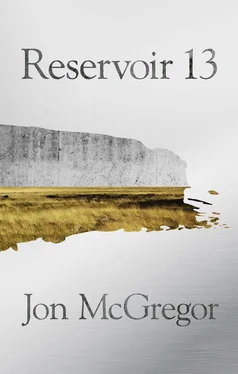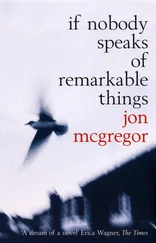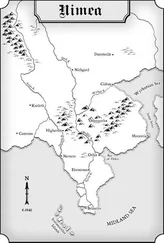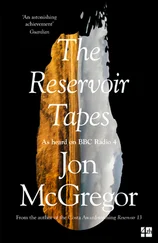Sophie Hunter and James Broad were known to be courting. This was the word Stuart Hunter used, without irony. Everyone had long assumed they would get together, but it was only a few weeks before they realised that something was wrong. They were in the cinema room at Sophie’s house one afternoon while her parents were away, and she told him not to take this the wrong way but sometimes it felt like kissing her brother. James told her she didn’t have a brother and she said that wasn’t the point. He wasn’t annoyed. He was almost relieved. He said that when he kissed her it didn’t feel like kissing his sister but more like kissing her mum. She asked when he’d kissed her mother and he said often. She’s a very liberated woman, he said, and she told him he was disgusting. It takes one to know one, he said. They were still holding each other, and although they knew where the conversation was going they were in no hurry to let go. He kissed her one more time, very softly, and shook his head. We used to run around naked together at playgroup, he said. It doesn’t feel right seeing you naked now. People will be disappointed, she told him. Captain of the rugby team and the head prefect? We’re supposed to be the dream team. This is it then? he asked. I guess it is, she said. That’s okay, isn’t it? He nodded. Mind you, she said, my parents aren’t due back for hours. She watched him as she unbuttoned her top. Well, this is confusing, he said. He shifted on the sofa. But if you’re going to be like that about it. She reached for the button of his jeans and they kissed again, quickly, and pulled off just enough clothes to have sex. He came quickly with a shout and a sigh and afterwards she stayed astride him for a moment, stroking the side of his face and telling him they would always be friends. And once they’d wriggled back into their clothes she told him, as though it was nothing, as though she’d only just thought of it, that actually Lynsey really liked him and he should think about that at some point. He shook his head and told her she was a disgrace. She asked him what the problem was. She wasn’t even at playgroup with us, she said. It would be different. He buttoned his jeans and reached for the remote control. You can choose, he said. The cricket team went over to Cardwell for the annual match and found that Cardwell had only managed to get eight players together. There was some discussion over whether the game should go ahead, and when it did the result was a hard-fought draw. Martin disappeared for a week and when he came back he was limping and there were cigarette burns on the backs of his hands. Woods had a longer memory than expected, was all he would say when Tony asked.
Mr Wilson lived next door to Cathy Harris, in one of a row of old mill workers’ cottages at the end of the lane by the cricket field. He’d moved to the area as a young man to work on the new reservoirs in the hills above the village. He and Jean had met in the drawing office, married within the year, and moved into the cottage together. When Cathy knocked on his door and asked if Nelson needed a walk, he invited her in for a cup of tea, as always. Nelson was running circles in the front room, and she reached down to knuckle him around the ears. He lifted his head and stilled for a moment, and Mr Wilson came through with the teas. He moved slowly now from age, and from his hip in particular, but Cathy remembered him as someone who’d always had an air of slow precision about him. She couldn’t picture him ever having run for a bus. She didn’t think he’d played in the village cricket team, although he’d been known to serve as umpire. He’d been an engineer with the water company until his retirement about five years ago, working on the reservoirs and the treatment plant for most of his career. He was proud of the project’s technical achievements, and knowledgeable on their working detail. His opinions on bottled water were well known. He was a tall man, with long limbs which he always seemed to be arranging carefully as he spoke. She’d never seen him without a collar and tie, although lately he’d been favouring cardigans over the jackets he’d worn before. I’ve made some more of those date slices, he told her, sitting down and smoothing the creases of his trousers as he crossed his legs. In the garden a pair of blackbirds were feeding together on the hawthorn, their young long gone. There was weather and the days began to shorten. At the church it was Maisie Jackson’s turn to put together the Harvest Festival display, and her decision to include a stack of unwashed fleeces alongside the more usual flowers and marrows and corn attracted remarks but nothing was said directly. There were blackthorn hedges on the track to Thompson’s farm that were mostly left uncut. By late September they were heavy with sloes, the black fruits in the sharp air dusted blue. It was a popular spot, and most of them were picked early and frozen to sweeten off, rattling like ball-bearings as they were poured into demijohns and smothered in sugar and gin. Frank Parker submitted his report on verge maintenance to the parish council. It had taken him more than a year to prepare. He was thanked for his work, and his conclusion — that more regular attention needed to be paid to verge maintenance throughout the village — was duly noted. James Broad’s parents finally separated, and his father moved out to a place in town. The swallows left for the year. There was some confusion at the first Workers’ Educational Association meeting of the term when the book-keeping tutor turned up with a bag of protective clothing and a demonstration hive.
There were concerns about how Su Cooper was coping with the twins. She was seen arriving at the playgroup in the village hall one morning just as the toys were being packed away. She’d had to unbolt both doors to fit the double buggy through, wrestling it backwards up the step, and as she pulled it into the corner and turned to face the room it took her a few moments to understand that she was too late. Lee ran straight to the toy cupboard and started pulling out the cars, and she had to hurry after him and explain. Most of the other parents had already left. Susanna Wright went over and told Su it would be fine for the boys to play with a couple of cars while everything else was being packed away, and although Su tried to stop him Lee took this as a cue and dragged two cars out for him and Sam. Let me get you a coffee, Susanna said, resting her hand on Su’s shoulder. Su hesitated, and moved away very slightly. Tea, she said. Susanna nodded, and Su followed her towards the kitchen, standing by the hatch and keeping an eye on the boys. They were driving the cars towards each other at great speed, crashing head-on and screaming. Susanna told Su she’d put some toast on. I’m guessing breakfast was a long time ago now, she said, smiling, and when Su didn’t reply she went on to tell a long story about when Rohan had been a toddler and she’d left the house four times in one morning, only to be thwarted by a succession of dirty nappies, spilt food, and a broken buggy wheel. And when I finally got to the bus stop someone told me my dress was inside out and I burst into tears, she said, laughing, buttering the toast and passing it across the counter. Su smiled, thinly. It must have been hard for you, she said; by yourself. Oh, darling, no, I wasn’t by myself then, Susanna said. Things were a lot easier once I was. The boys had started crashing their cars into the wall. It’s always hard, Susanna said, softly. And it must be especially hard with twins. People understand that, you know. No one’s judging you. Everyone knows what a great job you’re doing, okay? She reached across the counter and put a hand on Su’s arm, and again Su shifted slightly away. Her eyes were dry and her mouth was tight and there was a stiffness in the way she was standing. Please, she said.
Читать дальше
Конец ознакомительного отрывка
Купить книгу












